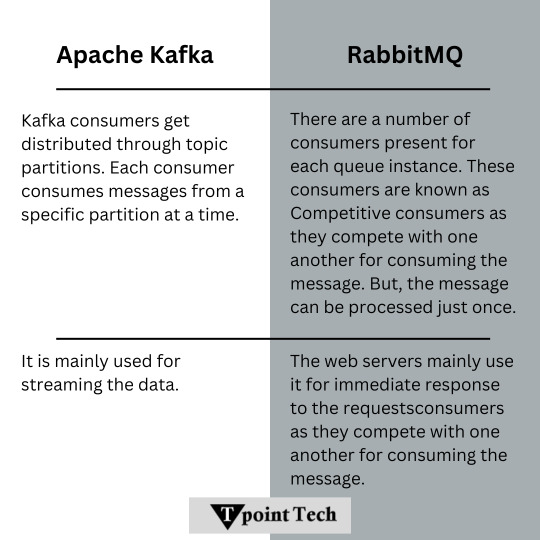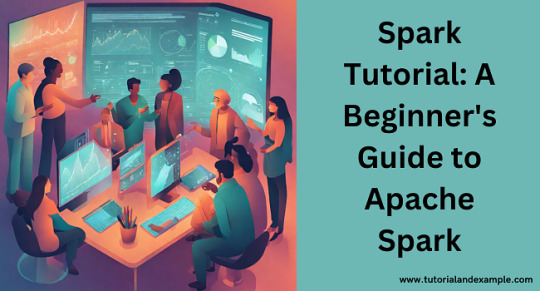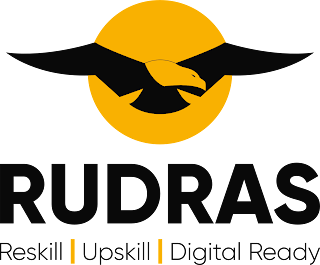#apache kafka tutorial
Explore tagged Tumblr posts
Text
Understanding Apache Kafka: The Backbone of Real-Time Data
visit the blog: https://velog.io/@tpointtechblog/Understanding-Apache-Kafka-The-Backbone-of-Real-Time-Data
Visit more blog:
https://themediumblog.com/read-blog/167042https://tpointtechblog.blogspot.com/2025/05/what-is-mysql-and-why-should-you-learn.htmlhttps://sites.google.com/view/learnjavaprogramminglanguage/home
https://dev.to/tpointtechblog/power-bi-for-beginners-complete-introduction-dashboard-creation-2khehttps://medium.com/@tpointtechblog/understanding-django-pythons-most-powerful-web-framework-2b969e7319f0
0 notes
Text
0 notes
Text
Leverage Python and Kafka for Real-Time Data Processing
Step-by-Step Explanation and Draft Introduction Overview: In the era of big data, real-time processing is crucial. Apache Kafka and Python are key tools for handling such data efficiently. This tutorial guides you through setting up Kafka, producing/consuming data, processing it in real-time with Python, and handling errors. Learning Outcomes: – Understanding Kafka architecture – Implementing…
0 notes
Text
Build Your Career with the Best Data Engineering Community Online
In today’s digital-first economy, data engineering is one of the most in-demand and rewarding tech careers. However, mastering this complex and evolving field isn’t just about self-study or online courses. Real growth often happens when you're part of a strong, supportive, and expert-driven community.
That’s exactly what the Big Data Bootcamp Data Engineering Community offers: a thriving ecosystem of professionals, mentors, and learners united by a common goal—to build and elevate careers in data engineering. Whether you’re just starting out or already working in tech, this online community offers the tools, guidance, and connections to help you succeed faster and more confidently.
Let’s explore why joining the right Data Engineering Community is a game-changer, and how Big Data Bootcamp’s platform stands out as the ultimate launchpad for your career in this exciting field.
Why Community Matters in Data Engineering
Learning to become a data engineer is more than following tutorials or earning certifications. The technology stack is wide and deep, involving concepts like distributed systems, data pipelines, cloud platforms, and real-time processing. Keeping up with these tools and practices is easier—and more effective—when you have a network of peers and experts to support you.
A professional community helps by providing:
1. Mentorship and Guidance
Tap into the knowledge of experienced professionals who have walked the path you’re on. Whether you're facing technical challenges or career decisions, mentors can provide direction that accelerates your progress.
2. Collaborative Learning
Communities foster an environment where learning is not just individual but shared. Group projects, open-source contributions, and peer reviews are common in active communities, offering real-world skills you can't gain in isolation.
3. Industry Insights
Staying current in data engineering requires awareness of trends, best practices, and innovations. A connected community can be your real-time feed for what’s happening in the world of big data.
4. Career Opportunities
Networking is one of the fastest ways to land a job in tech. Many community members share job leads, referrals, and insider info that isn't publicly posted.
5. Accountability and Motivation
When you're surrounded by motivated people with similar goals, it keeps you inspired and on track. Sharing progress and celebrating milestones fuels ongoing commitment.
Introducing the Big Data Bootcamp Community
The Big Data Bootcamp Data Engineering Community is more than just a chat group or online forum. It’s an organized, high-impact environment designed to provide real value at every stage of your career journey.
Hosted at BigDataBootcamp.com, the platform combines the best of structured learning, peer support, and professional development. It’s tailored specifically for:
Aspiring data engineers
Bootcamp and college graduates
Career switchers from software development, analytics, or IT
Experienced data professionals looking to level up
Here’s what makes this online community stand out.
What You Get as a Member
1. Access to Expert Mentors
Learn from top-tier professionals who have worked with companies like Google, Amazon, Meta, and cutting-edge startups. These mentors actively guide members through code reviews, project feedback, and one-on-one career advice.
2. Structured Learning Paths
Community members can access exclusive workshops, tutorials, and study groups aligned with in-demand skills like:
Data pipeline design
Apache Spark, Kafka, and Airflow
Cloud data platforms (AWS, GCP, Azure)
Data warehouse tools like Snowflake and BigQuery
Advanced SQL and Python scripting
3. Real-World Projects
Apply your skills in collaborative projects that simulate actual industry challenges. This builds not just your knowledge, but also your portfolio—essential for standing out to employers.
4. Career Acceleration Services
Take advantage of:
Resume and LinkedIn profile reviews
Job interview prep sessions
Access to a private job board
Referrals from alumni and hiring partners
5. Regular Events and Networking
Participate in:
Webinars with industry leaders
AMAs with senior data engineers
Virtual meetups and hackathons
Fireside chats and alumni Q&As
These events keep the community lively and ensure you stay connected with the pulse of the industry.
6. Supportive Peer Network
Exchange ideas, ask questions, and get feedback in a welcoming environment. Whether you’re debugging a pipeline or seeking advice on cloud certification, the community is always there to help.
Proven Success Stories
Here are just a few examples of how the community has changed lives:
Manoj, a mechanical engineer by training, transitioned into a data engineering role at a healthcare company within six months of joining the community.
Ayesha, a computer science graduate, used the community's project-based learning approach to build a portfolio that landed her a job at a fintech startup.
Carlos, an IT administrator, leaned on mentorship and mock interviews to land a role as a data engineer with an international consulting firm.
These success stories aren't exceptions—they're examples of what's possible when you're part of the right support system.
Why Choose Big Data Bootcamp Over Other Communities?
While other online tech communities exist, few offer the blend of quality, focus, and career alignment found at Big Data Bootcamp. Here’s why it stands out:
Focused on Data Engineering – It’s not a generic tech group. It’s built specifically for those in data engineering.
Built by Practitioners – Content and mentorship come from people doing the work, not just teaching it.
Job-Oriented – Everything is aligned with real job requirements and employer expectations.
Inclusive and Supportive – Whether you're just beginning or well into your career, there's a place for you.
Live Interaction – From live workshops to mentor check-ins, it's a dynamic experience, not a passive one.
How to Join
Becoming part of the Big Data Bootcamp Community is simple:
Visit BigDataBootcamp.com
Explore bootcamp offerings and apply for membership
Choose your learning path and start attending community events
Introduce yourself and start engaging
Membership includes lifetime access to the community, learning content, events, and ongoing support.
Final Thoughts
If you're serious about becoming a high-performing data engineer, you need more than just courses or textbooks. You need real connections, honest guidance, and a community that pushes you to grow.
At Big Data Bootcamp, the online data engineering community is built to do just that. It’s where careers are born, skills are refined, and goals are achieved.
Join us today and start building your future with the best data engineering community on the internet.
The tech world moves fast. Move faster with the right people by your side.
0 notes
Text

Apache Kafka . . . . for more information & tutorial https://bit.ly/3QjRtaN check the above link
0 notes
Text
Spark Made Simple: A Practical Tutorial for Big Data Enthusiasts

Apache Spark is a powerful tool for processing large amounts of data quickly and efficiently. If you’re new to the world of big data, this Spark Tutorial will help you understand the basics and get started with using Spark in your projects.
What is Apache Spark?
Apache Spark is an open-source data processing engine designed to handle large-scale data processing tasks. It’s known for its speed and ease of use compared to other data processing frameworks like Hadoop. Spark supports multiple programming languages, including Python, Java, and Scala, making it versatile for developers.
Why Use Spark?
Spark is incredibly fast because it processes data in-memory, reducing the time it takes to complete tasks. It’s also easy to integrate with other big data tools, such as Hadoop and Apache Kafka, making it a popular choice for data engineers and data scientists.
Getting Started with Spark
To start using Spark, you’ll need to install it on your system or use a cloud-based platform like Databricks. Once installed, you can begin writing simple programs to process data. Spark SQL is one of its most powerful features, allowing you to run SQL queries on large datasets effortlessly.
For a more detailed Spark Tutorial, including step-by-step instructions, visit Tutorial and Example's Spark Tutorial.
0 notes
Text
How Can Beginners Start Their Data Engineering Interview Prep Effectively?
Embarking on the journey to become a data engineer can be both exciting and daunting, especially when it comes to preparing for interviews. As a beginner, knowing where to start can make a significant difference in your success. Here’s a comprehensive guide on how to kickstart your data engineering interview prep effectively.
1. Understand the Role and Responsibilities
Before diving into preparation, it’s crucial to understand what the role of a data engineer entails. Research the typical responsibilities, required skills, and common tools used in the industry. This foundational knowledge will guide your preparation and help you focus on relevant areas.
2. Build a Strong Foundation in Key Concepts
To excel in data engineering interviews, you need a solid grasp of key concepts. Focus on the following areas:
Programming: Proficiency in languages such as Python, Java, or Scala is essential.
SQL: Strong SQL skills are crucial for data manipulation and querying.
Data Structures and Algorithms: Understanding these fundamentals will help in solving complex problems.
Databases: Learn about relational databases (e.g., MySQL, PostgreSQL) and NoSQL databases (e.g., MongoDB, Cassandra).
ETL Processes: Understand Extract, Transform, Load processes and tools like Apache NiFi, Talend, or Informatica.
3. Utilize Quality Study Resources
Leverage high-quality study materials to streamline your preparation. Books, online courses, and tutorials are excellent resources. Additionally, consider enrolling in specialized programs like the Data Engineering Interview Prep Course offered by Interview Kickstart. These courses provide structured learning paths and cover essential topics comprehensively.
4. Practice with Real-World Problems
Hands-on practice is vital for mastering data engineering concepts. Work on real-world projects and problems to gain practical experience. Websites like LeetCode, HackerRank, and GitHub offer numerous challenges and projects to work on. This practice will also help you build a portfolio that can impress potential employers.
5. Master Data Engineering Tools
Familiarize yourself with the tools commonly used in data engineering roles:
Big Data Technologies: Learn about Hadoop, Spark, and Kafka.
Cloud Platforms: Gain experience with cloud services like AWS, Google Cloud, or Azure.
Data Warehousing: Understand how to use tools like Amazon Redshift, Google BigQuery, or Snowflake.
6. Join a Study Group or Community
Joining a study group or community can provide motivation, support, and valuable insights. Participate in forums, attend meetups, and engage with others preparing for data engineering interviews. This network can offer guidance, share resources, and help you stay accountable.
7. Prepare for Behavioral and Technical Interviews
In addition to technical skills, you’ll need to prepare for behavioral interviews. Practice answering common behavioral questions and learn how to articulate your experiences and problem-solving approach effectively. Mock interviews can be particularly beneficial in building confidence and improving your interview performance.
8. Stay Updated with Industry Trends
The field of data engineering is constantly evolving. Stay updated with the latest industry trends, tools, and best practices by following relevant blogs, subscribing to newsletters, and attending webinars. This knowledge will not only help you during interviews but also in your overall career growth.
9. Seek Feedback and Iterate
Regularly seek feedback on your preparation progress. Use mock interviews, peer reviews, and mentor guidance to identify areas for improvement. Continuously iterate on your preparation strategy based on the feedback received.
Conclusion
Starting your data engineering interview prep as a beginner may seem overwhelming, but with a structured approach, it’s entirely achievable. Focus on building a strong foundation, utilizing quality resources, practicing hands-on, and staying engaged with the community. By following these steps, you’ll be well on your way to acing your data engineering interviews and securing your dream job.
#jobs#coding#python#programming#artificial intelligence#education#success#career#data scientist#data science
0 notes
Text
Mastering Big Data: A Comprehensive Guide to Online Learning - rudrasonline
Learning Big Data Courses Online– RudraOnline can be a rewarding endeavor, and there are numerous resources available. Here's a step-by-step guide to help you get started:

Understand the Basics:
Familiarize yourself with the basic concepts of big data, such as volume, velocity, variety, veracity, and value (the 5 V's).
Learn about distributed computing and parallel processing.
Programming Languages:
Gain proficiency in programming languages commonly used in big data processing, such as Python, Java, or Scala.
Foundational Technologies:
Learn the fundamentals of big data technologies like Apache Hadoop and Apache Spark. These technologies are widely used for distributed storage and processing.
Online Courses:
Explore online learning platforms that offer big data courses. Platforms like Coursera, edX, Udacity, and LinkedIn Learning provide courses from universities and industry experts.
Certifications:
Consider pursuing certifications in big data technologies. Certifications from vendors like Cloudera or Hortonworks can enhance your credibility.
Hands-on Practice:
Practice what you learn by working on real-world projects. Platforms like Kaggle provide datasets for hands-on experience.
Documentation and Tutorials:
Read official documentation and follow tutorials for big data technologies. This will help deepen your understanding and troubleshoot issues.
Books:
Refer to books on big data, such as "Hadoop: The Definitive Guide" by Tom White or "Spark: The Definitive Guide" by Bill Chambers and Matei Zaharia.
Community Involvement:
Join online forums and communities where big data professionals share knowledge and experiences. Participate in discussions and ask questions when needed.
Specialize:
Depending on your interests and career goals, consider specializing in specific areas within big data, such as data engineering, data science, or machine learning.
Advanced Topics:
Explore advanced topics like Apache Kafka for real-time data streaming or Apache Flink for stream processing.
Networking:
Attend webinars, conferences, and meetups related to big data. Networking with professionals in the field can provide valuable insights and potential job opportunities.
0 notes
Link
Learn Java Online at Your Own speed with GKIndex; free interactive Java & Apache Kafka tutorial for Beginners who want to learn Java fast today & become an Expert in Days.
#learn java online#kafka tutorial#java online course#java online tutorials#learn java online free#apache kafka tutorial#kafka streams tutorial#kafka tutorial java#online java training#java courses near me#best online java course#java course online free#java programming online course#learn java free online#java training online free#best site for java learning#online tutorial for java#kafka online tutorial#Java Online Tutorials for beginners
1 note
·
View note
Text

Apache Kafka is a powerful distributed platform used for building real-time data pipelines and streaming applications. This Kafka tutorial is designed for beginners who want to understand how Kafka works, including its core components like producers, consumers, brokers, and topics. Learn how data flows in real time, how to set up a basic Kafka environment, and how to avoid common mistakes. Whether you're a developer or data engineer, this guide will help you get started with confidence in event-driven architecture.
For more information and interview questions, you can also visit Tpoint Tech, where you can find many related topics.
Contact Information:
Address : G-13, 2nd Floor, Sec-3, Noida, UP, 201301, India
Mobile: +91-9599086977
Email: [email protected]
Website: https://www.tpointtech.com/apache-kafka
0 notes
Text
Microservices Communication With Apache Kafka
Microservices Communication With Apache Kafka
When developing a new product, the first thing that comes to mind is how to structure code. There is a battle going on in this regard: monolithic vs microservices. It has been going on for a while because software developers and company owners are still trying to figure out which architectural style is ideal for their applications. The scalability, efficiency, and competitiveness of the product…
View On WordPress
#apache kafka#apache kafka tutorial#microservice deployment#microservices#microservices communication#microservices in docker
0 notes
Link
#hadoop admin training#big data hadoop#hadoop courses#hadoop developer training#spark scala tutorial#scala training#spark training#apache kafka#apache strom#splunk training#ittraining
0 notes
Text
0 notes
Text
Building a Scalable Machine Learning Pipeline: A Hands-On Guide with Kafka & Spark
1. Introduction 1.1 Overview Building a scalable machine learning pipeline is essential for handling the increasing volumes and velocities of data in modern applications. Apache Kafka and Apache Spark are two of the most popular tools for building such pipelines, enabling real-time data processing, streaming analytics, and efficient machine learning workflows. This tutorial provides a hands-on…
0 notes